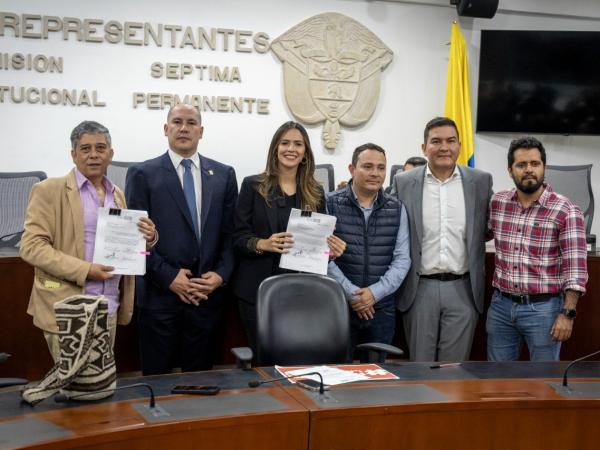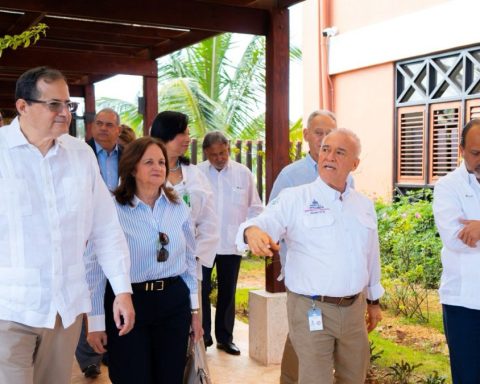Amid a challenging context for Congress due to the recent corruption scandals that have shaken the Casa de Nariño, the way in which the pension reform was approved last semester or the tight fiscal accounts of the Government, among other circumstances, this week the second round of labor reform began, with the formal filing of the new text by the initiative’s speakers.
This project has only achieved partial approval of its articles in the first debate, since a large part of it was removed in the last legislature, so now its process cannot be delayed as much as until now or it runs the risk of sinking again, despite the fact that the Government and spokesmen As Mafe Carrascal, the representative who will lead the process, points out, there will be a broad debate.
For reading: New attempt by the Petro Government to hire community organizations
“We entered into this second debate without any major in-depth changes because we know that in the plenary session there will be a fairly broad, fairly in-depth debate, more than there has been in the year and a half since this reform was introduced in Congress, and that while there were 270 proposals in the first debate, we know that there will be even more in the second debate, because it is a reform that is very important and very transcendental,” he explained.
Labor reform – filing of second debate.
Courtesy.
Among the details to highlight about the document that will now be discussed in the Plenary The House of Representatives, it must be said, consists of 79 articles and includes 6 new ones on support for micro and small businesses, the increase in the vacation period for operational staff of private security and surveillance services and the recruitment of dependent workers in vulnerable conditions. This is without forgetting all the regulations on collective agreements that the Government will try to revive.
“This is a unifying proposal, it is a great agreement of all the parties and we hope that it will not be delayed. The recovery of job stability and labor rights is urgent for the benefit of workers and employers. It is necessary to move forward with this process and fulfill our promise to the Colombian people,” added Alfredo Mondragón, also coordinator of the project.
You may be interested in: Dian lifts contingency after overcoming failures in processing income tax returns
Coming?
According to the same speakers of the labor reform, taking into account that they want to hold a couple more hearings on the scope and effects of the proposal, they expect the plenary debate of the House of Representatives to take place at the beginning of September, Therefore, the Senate process would have just under three months to be completed without setbacks.

In the first debate of the VII Commission of the House of Representatives, the labor reform was approved.
Cesar Melgarejo
Among the key points to be discussed in this project are the conditions of the night shift, which will be extended to benefit workers with higher surcharges; and the gradual increase in the surcharge for working on mandatory rest days or holidays, which will reach 100% in 2026.
The reform also seeks to strengthen workers’ rights by modifying the conditions of fixed-term contracts, increasing compensation for dismissal without just cause and establishing a maximum term for this type of contract.
More news: When will inflation in Colombia approach the Banco de la República’s target?
Another relevant aspect is the formalization of domestic work, guaranteeing better working conditions and social protection for this sector. In addition, the aim is to promote gender equality by increasing paternity leave and implementing flexible working hours to facilitate work-life balance.
Finally, the reform also includes measures to prevent and eradicate violence, harassment and discrimination in the workplace, extending protection to all workers, regardless of their type of employment. These changes, according to the Ministry of Labor, seek to improve the working conditions of Colombians, strengthen social dialogue and promote a more fair and equitable work environment.
















